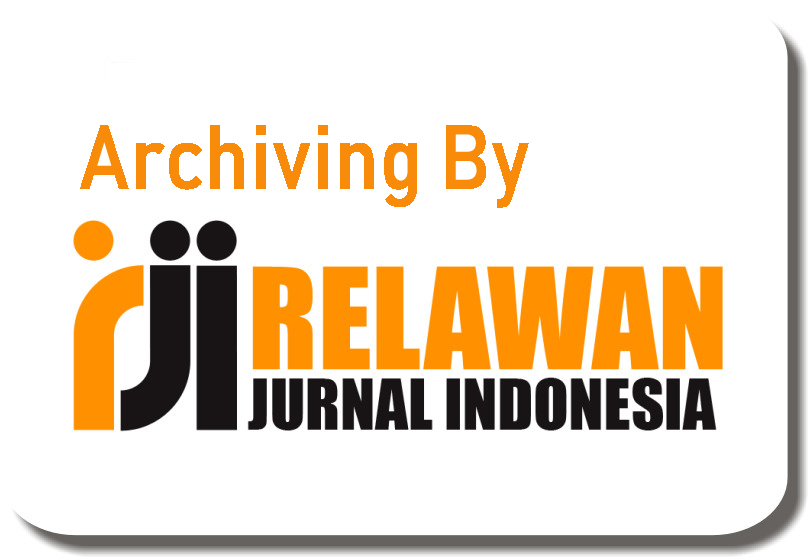Profile of Mathematics and English Proficiency as well as Mathematical Literacy of Pre-Service Mathematics Teachers in the Era of Technology-Based Education
Abstract
This study aims to describe the profile of pre-service mathematics teachers regarding their mathematical proficiency, English language competence, and mathematical literacy in the context of technology-driven education. As digital learning resources increasingly demand the integration of content knowledge, language skills, and higher-order thinking, this study investigates the extent to which these future educators are prepared. Using a mixed-methods approach involving diagnostic tests, literacy tasks, and interviews, the results show that students exhibit moderate mastery in mathematics and basic English but struggle with applying concepts in real-life problem-solving situations—an indicator of low mathematical literacy. The study calls for curriculum redesign that bridges content, language, and technology to better equip future teachers.
Keywords
Full Text:
PDFReferences
Ball, D. L., Thames, M. H., & Phelps, G. (2008). Content knowledge for teaching: What makes it special? Journal of Teacher Education, 59(5), 389–407.
Choi, Y. (2016). The importance of academic English proficiency for pre-service teachers. Asian EFL Journal, 18(5), 111–130.
Creswell, J. W. (2014). Research design: Qualitative, quantitative, and mixed methods approaches (4th ed.). SAGE Publications.
Cummings, A., & John, M. (2019). Integrating literacy into mathematics instruction: A necessity in teacher education. Mathematics Teacher Education and Development, 21(1), 45–60.
Mishra, P., & Koehler, M. J. (2006). Technological pedagogical content knowledge: A framework for teacher knowledge. Teachers College Record, 108(6), 1017–1054.
Nation, I. S. P. (2001). Learning vocabulary in another language. Cambridge University Press.
Nugroho, D., Wardani, D. K., Beech, J., & Donnelly, M. (2021). Education response to COVID-19 in Indonesia: An assessment of policies and their implementation in 2020–2021. The World Bank. https://documents.worldbank.org/en/publication/documents-reports/documentdetail/226481627067063482
PISA 2018 Results: What Students Know and Can Do (Volume I). OECD Publishing.
PISA. (2022). Mathematical literacy framework. OECD Publishing.
PISA. (2022). PISA 2022 Mathematics Framework. OECD Publishing. https://pisa2022-maths.oecd.org
Putri, F. H., & Siregar, E. (2020). English proficiency challenges in digital learning for Indonesian teachers. Journal of Language and Education Studies, 6(2), 45–53. https://doi.org/10.17509/jles.v6i2.25600
Putri, Y., & Siregar, H. (2020). English as a barrier in accessing online mathematics content. Journal of Language and Learning, 4(1), 33–44.
Rahmawati, D. (2022). Exploring English competence in mathematics education. Jurnal Pendidikan Matematika, 8(2), 88–101.
Rahmawati, Y. (2022). Investigating English language proficiency among Indonesian pre-service teachers. International Journal of Language Education, 6(1), 72–84. https://doi.org/10.26858/ijole.v6i1.20644
Shulman, L. S. (1987). Knowledge and teaching: Foundations of the new reform. Harvard Educational Review, 57(1), 1–22.
Suryani, I. (2021). Assessing mathematical problem-solving skills among Indonesian prospective teachers. Jurnal Pendidikan Matematika, 15(1), 10–18. https://doi.org/10.22342/jpm.v15i1.9502
Suryani, R. (2021). Profil kemampuan matematis calon guru. Jurnal Pendidikan dan Pembelajaran Matematika, 5(3), 123–132.
Voogt, J., Fisser, P., Pareja Roblin, N., Tondeur, J., & van Braak, J. (2015). Technological pedagogical content knowledge–a review of the literature. Journal of Computer Assisted Learning, 31(3), 303–318. https://doi.org/10.1111/jcal.12087
Vygotsky, L. S. (1978). Mind in society: The development of higher psychological processes. Harvard University Press.
Warschauer, M., & Matuchniak, T. (2010). New technology and digital worlds: Analyzing evidence of equity in access, use, and outcomes. Review of Research in Education, 34(1), 179–225.
Zou, D., Wang, D., & Xing, M. (2021). Digital competence and mathematics learning: A systematic review of recent literature. Educational Technology & Society, 24(1), 1–16. https://www.j-ets.net/ETS/journals/24_1/1.pdf
Zulkardi, & Putri, R. I. I. (2006). Design research in mathematics education as a means to develop local instruction theory. The Netherlands: Freudenthal Institute.
DOI: https://doi.org/10.31004/jele.v10i4.1119
Refbacks
- There are currently no refbacks.
Copyright (c) 2025 Agnes Teresa Panjaitan

This work is licensed under a Creative Commons Attribution-ShareAlike 4.0 International License.



